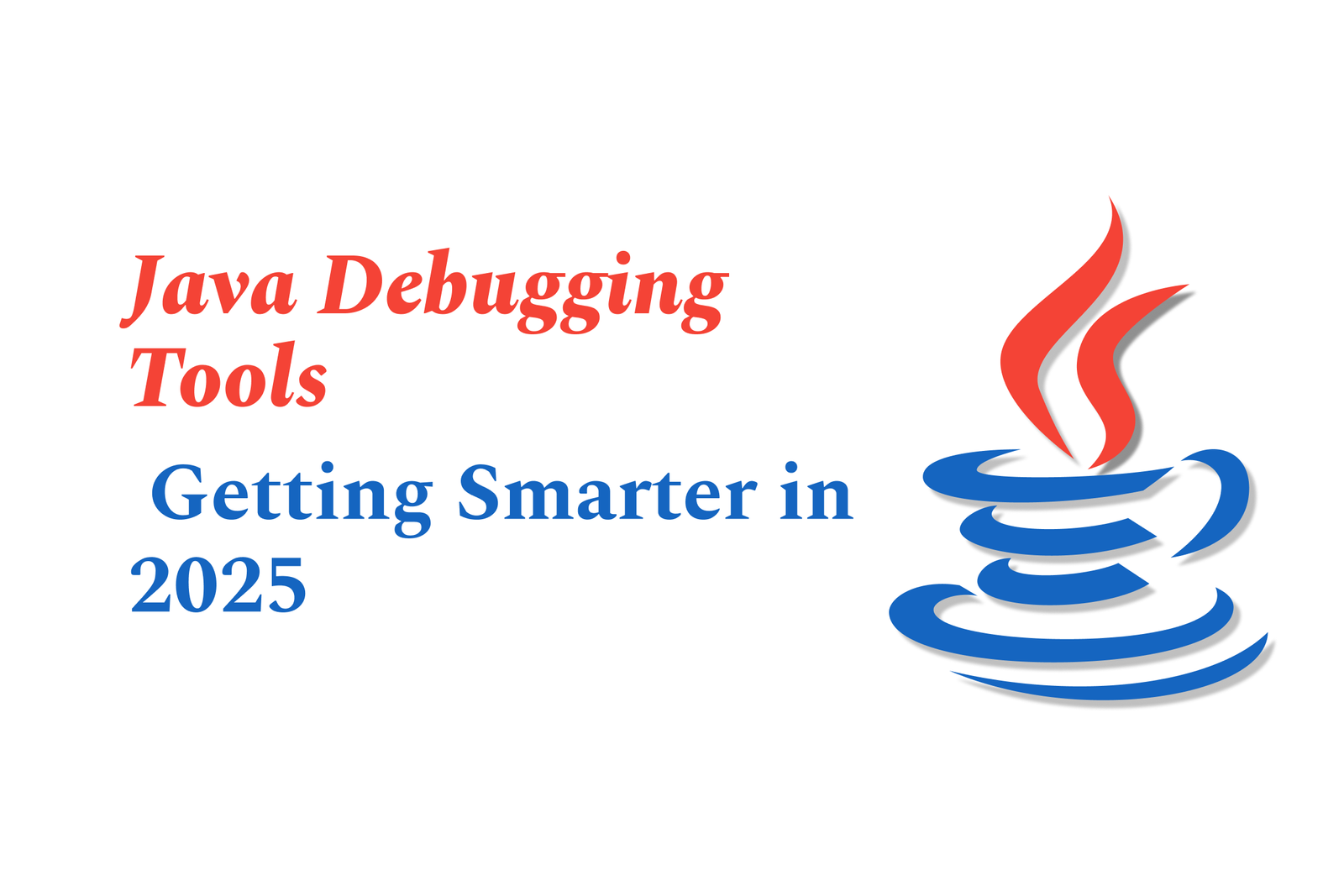Java debugging tools getting smarter in 2025
In 2025, Java debugging tools have become smarter by integrating AI and automated testing to quickly identify and fix code errors. These advanced tools offer real-time insights, suggest fixes, and streamline debugging, making Java development faster and more efficient.
Java Debugging Tools Getting Smarter in 2025
1 ) Introduction to Smart Java Debugging Tools
By 2025, Java debugging tools have evolved to become significantly smarter, leveraging artificial intelligence and automated reasoning to assist developers in identifying and resolving issues more efficiently. These tools integrate AI driven code analysis, test generation, and fault isolation to enhance debugging workflows.
2 ) Key Advances in Debugging Technology
AI Enhanced Code Insight: Modern debugging tools now use AI models to analyze code context, detect logical errors, and provide suggestions for fixes beyond traditional syntax errors.
Automated Test Generation and Debugging: Tools can automatically create unit tests targeting complex logic errors, helping quickly isolate faults caused by off by one mistakes, type confusions, or boundary conditions.
Integration with Development Environments: These debugging solutions seamlessly integrate with popular Java IDEs like IntelliJ IDEA and Eclipse, offering real time feedback and contextual code reviews during development.
3 ) Handling Logic Errors with Smarter Debugging
Logic errors, which often cause programs to run incorrectly despite compiling, remain a challenge. The new generation of debugging tools offers:
Verification protocols using test driven approaches to catch semantic mismatches early.
Hypothesis testing frameworks that help developers iteratively refine tests to pinpoint faulty logic.
Regression test debugging integration to detect when logic faults reappear after changes.
4 ) Benefits for the Java Developer Community
These improvements translate to:
Reduced debugging time through automated fault detection and repair suggestions.
Enhanced code quality by combining AI powered code reviews with custom test automation.
Better support for handling complex programming errors that traditionally slipped through manual testing.
5 ) Conclusion
In 2025, Java debugging tools have become indispensable allies for developers, moving beyond mere error detection to intelligent understanding and resolution of code flaws. By incorporating AI and automated testing capabilities, these tools empower developers to build more reliable and maintainable Java applications efficiently.
https://justacademy.in/news-detail/react-native?s-secret-weapon:-faster-app-load-times
https://justacademy.in/news-detail/java-api-for-json-processing:-updates-you-should-know
https://justacademy.in/news-detail/android-voice-assistant-improvements
https://justacademy.in/news-detail/how-ios-19-improves-app-crash-reporting
https://justacademy.in/news-detail/how-react-native-is-breaking-into-enterprise-markets
Related Posts
In 2025, top Angular libraries offer modern, feature-rich components and tools for building dynamic web apps. From powerful data grids to low-code platforms like UI Bakery, these libraries enhance development speed, UI design, and scalability, making them essential for Angular developers.
Migrating from AngularJS to Angular 17 involves gradually upgrading your app by running both frameworks together using tools like ngUpgrade, rewriting components in TypeScript, and adopting Angular’s modern architecture to enhance performance, maintainability, and long-term support.
Angular state management tools help organize and handle app data efficiently, improving scalability and maintainability. Popular options include NgRx for robust, RxJS-based patterns, and newer Signal Store solutions that offer simpler, reactive approaches integrated tightly with Angular’s latest features.
RxJS in Angular empowers developers to manage asynchronous data streams with powerful operators like `forkJoin`, `combineLatest`, and `zip`. Mastering these key operators in 2025 is essential for building efficient, reactive applications that handle complex event sequences seamlessly.
Angular performance optimization in 2025 focuses on improving app speed and responsiveness by using techniques like OnPush change detection, lazy loading, efficient data caching, and AOT compilation. These practices reduce load times, enhance user experience, and ensure scalable, fast Angular applications.
In 2025, Angular remains preferred for large-scale, enterprise apps with its robust, all-in-one framework, while Vue attracts developers seeking simplicity and fast development for smaller projects. Both frameworks excel, with choice driven by project needs and team expertise.
Angular Signals are a new reactive primitive in Angular 16 that enable fine-grained, efficient change detection by automatically tracking dependencies and updating only affected parts of the UI. They simplify state management and boost app performance, revolutionizing Angular's reactivity model.
Angular interview questions to prepare in 2025 focus on core concepts like components, directives, data binding, routing, and dependency injection, along with TypeScript mastery and latest Angular features to ensure strong practical knowledge for building scalable, efficient web applications.
AngularJS reached its official end of support in January 2022, meaning no further updates or security patches. To ensure app security and performance, developers should consider migrating to modern Angular versions or seek third-party long-term support options if immediate migration isn’t possible.
The Angular Roadmap 2025 highlights upcoming features focused on improving developer experience and performance, including zoneless Angular, Signals integration, enhanced Forms, async data handling, improved HMR, and expanded Angular Material/CDK enhancements, driving modern, efficient web app development.










